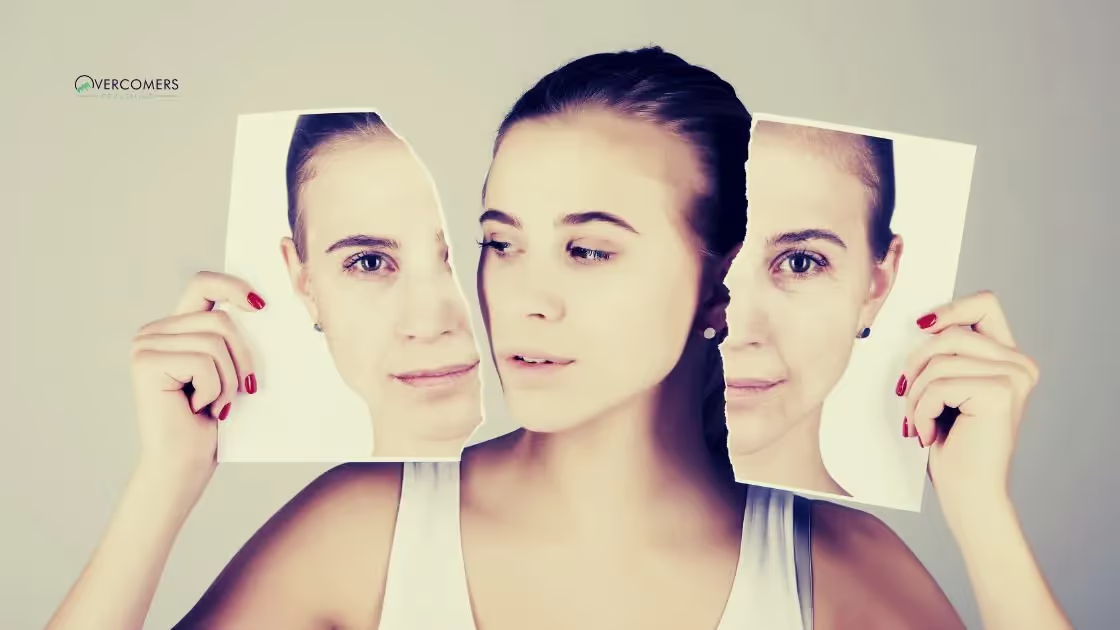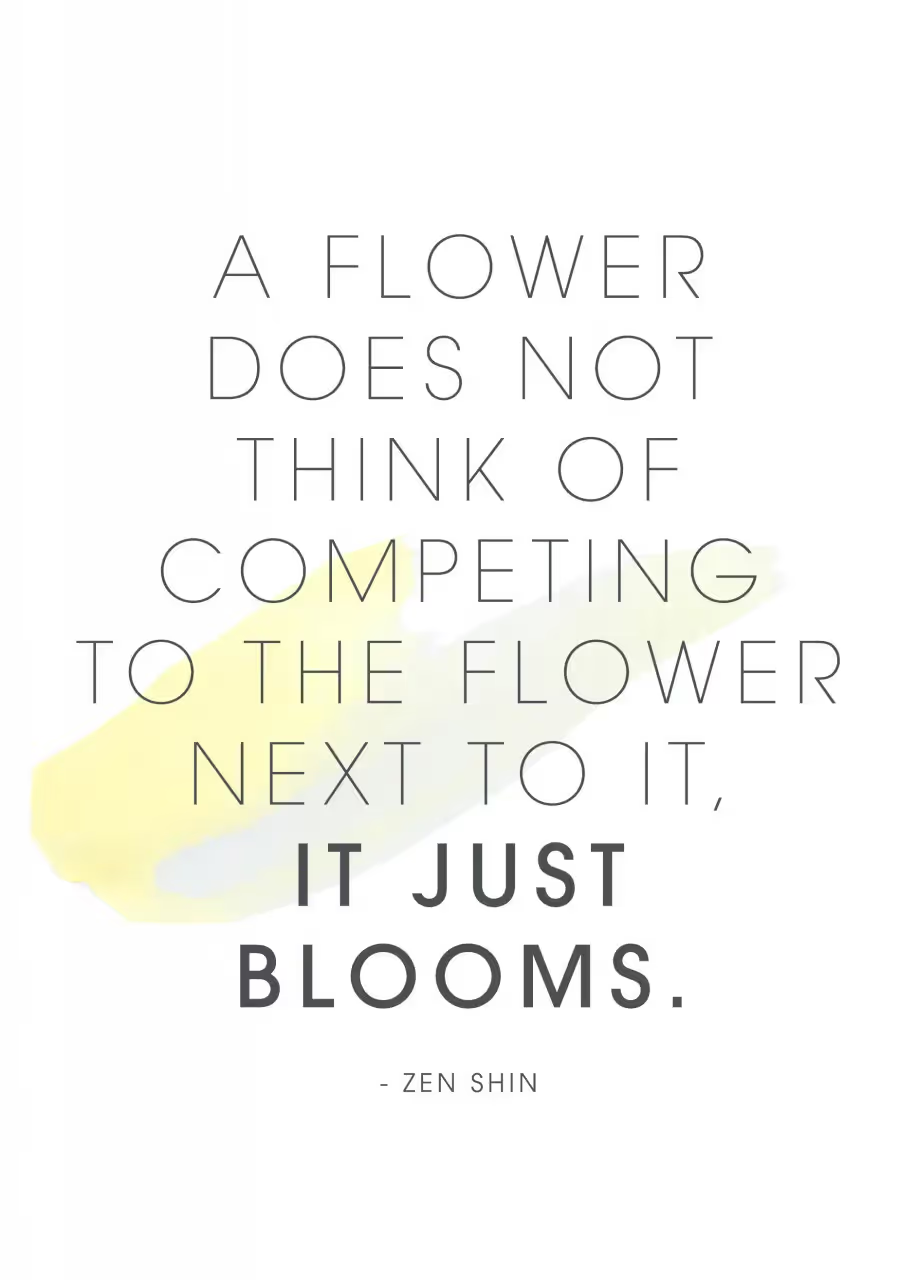There are many quotes warning people never to compare themselves to others."Comparison is the most poisonous element in the human heart." -Euginia...

There are many quotes warning people never to compare themselves to others.
"Comparison is the most poisonous element in the human heart." -Euginia Herlihy
"The grass is always greener on the other side."
"Look in the mirror other than your neighbor." -Frank Sonnenberg
"Be yourself, everyone else is already taken." -Oscar Wilde
And my favorite, "compare yourself to who you were yesterday, not who someone else is today." -Jordan Peterson
The central message is clear, if you are looking at others, you are neglecting yourself.
Let's take a look at comparison and depression.
Why is comparison bad?
Is it always bad?
Comparison and depression go hand in hand.
When you are comparing yourself to others it is almost always comparing what you don't have to what they do have.
We almost always naturally see the advantages others have, the life they seem to live, the friends and successes they show off on social media... the list goes on.
This inevitably makes you feel worthless and blinds you to the things you do have.
Depression is the state of mind that tells you that everyone else is better and that you don't matter; comparing yourself to others reinforces that inaccurate assessment.
It also robs other people of their lived experiences.
If you see someone else's beautiful house or a new car, do you ever think about how hard they've hard to work to make that amount of money?
Have you ever considered all the sacrifices their life has required to get where they are?
Probably not, because most people only compare what they see to what they have.
Normally people get jealous and then quickly move on after making a snide remark.
However, depression stops you from moving past the comparison and moving on with the rest of your day.
Depression forces you to think only about that comparison over and over and robs you of thinking about what you do have.
It digs that hole deeper and deeper making it harder and harder to get out.
This is why social media has become such a danger to so many young people, especially teenagers.
Puberty creates a lot of self-doubts as self-awareness increases.
As self-awareness increases so does your awareness of others.
Social media opens the door to the most beautiful, most successful, most popular, most funny, and most intelligent people on the planet.
Imagine then how it feels to be depressed and inundated with images of these people for hours a day every single day.

STOP.
As soon as you notice that you are comparing yourself to others, STOP.
Turn your attention to anything else.
Here are some ideas that will help you direct your thoughts to something better:
1) Get off of social media (or at least limit your time to an hour a day)
2) Focus on learning a new skill
3) Practice mindfulness meditation
4) Write a letter of gratitude about a person you are truly grateful for
5) Reach out to friends or family and talk on the phone, or get together in person
6) Go exercise!
7) Read a new book
8) Create goals for your life
Each of these practices gives you control over your mind and produces positive effects by engaging in them
Depression makes you think there's nothing you can do about your life when in reality you have far more control over your circumstances than you think.
Comparison and depression go hand-in-hand.
But, you can teach yourself to stop comparing yourself to others and re-focus your attention on bettering your own life.
If you are unhappy with your life, you don't have to passively watch others live theirs- focus on bettering your own life through conscious effort!
Make goals, learn skills, develop your relationships, and focus on your own life.
And, to come full circle, "compare yourself to who you were yesterday, not who someone else is today." Jordan Peterson.
It's important that you feel comfortable discussing personal matters with your therapist in order to open up and get more out of therapy sessions; therefore finding someone who meets certain criteria like experience level, expertise areas, and personality is key when selecting a therapist who can give meaningful feedback about how best handle issues related to anxiety or other mental health concerns.
To reduce your anxiety, you can practice relaxation techniques such as deep breathing, progressive muscle relaxation, guided imagery, and mindfulness practices. Additionally, regular exercise has been found to be beneficial in managing stress and improving mental health.
Addressing anxiety is crucial because it can significantly impact your quality of life and overall well-being. Left untreated, anxiety can lead to more severe mental health issues, relationship problems, and difficulty functioning in daily life.
Other activities which have been found helpful in reducing both immediate feelings of anxiousness and long-term anxieties associated with chronic disorders include yoga, journaling, nature walks, art therapy, volunteering, and other low-stress activities. Additionally, developing a healthy lifestyle incorporating adequate sleep, physical activity, and nutritious meals can help reduce overall stress levels.
The duration of anxiety counseling varies for each individual, depending on the severity of their anxiety and their progress in therapy. Our therapists will regularly assess your progress and adjust your treatment plan as needed.
Ignoring anxiety can exacerbate symptoms and make it more challenging to manage over time. This can result in a negative impact on your personal, professional, and social life, leading to feelings of isolation and even depression.